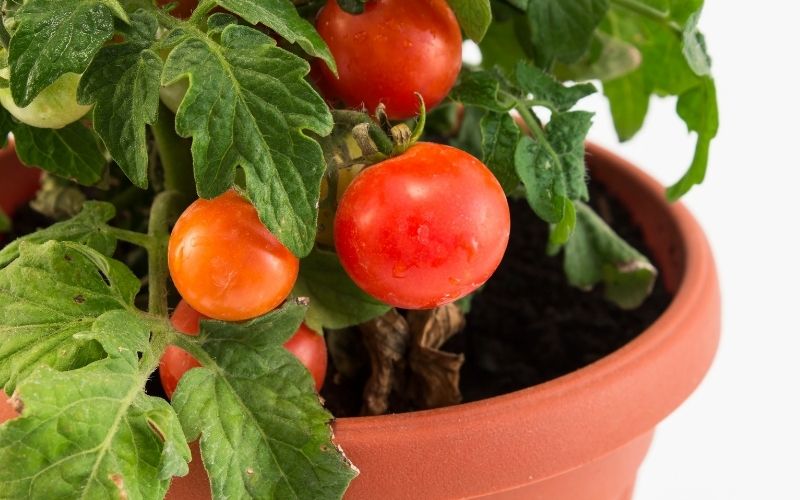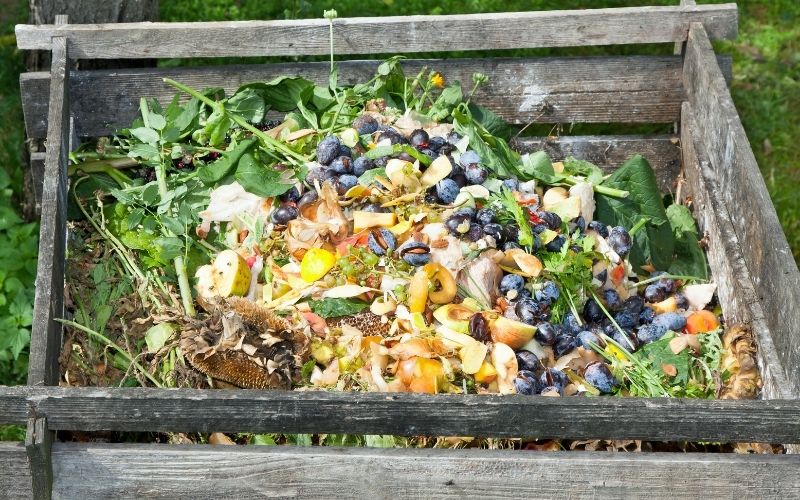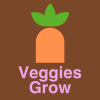Food waste is an issue worldwide because 17% of all food produced is wasted each year. Food waste is food that is fit for consumption but is intentionally discarded from retail establishments to households. More than two thirds of food waste is from households, with each of us wasting an average of 74 kg of food each year.
Reducing the amount of food waste is not hard but does take some effort. I’ve been interested in reducing food waste from a young age and have realized that it has become a lot easier for me after I started growing my own vegetables. Although it is not usually listed as an action that can be taken to reduce food waste, growing your own vegetables does make it a lot easier.
- You can harvest your food just before you cook or eat
A lot of food waste happens because food is bought, stored in the fridge or a cupboard and then forgotten. When you grow your own food at home, you don’t need to stock up your fridge or cupboards with produce. You can either harvest just what you need for that day or better yet plan your meals around the produce that will be available. Since the produce is cooked and eaten just after it becomes available, it is less likely to be forgotten and wasted.

- You can regrow vegetables from kitchen scraps
Regrowing vegetables from kitchen scraps means that you can start a vegetable garden without spending any money at all. Root vegetables such as carrots and beets will not regrow their roots but will grow leaves, which are edible, tasty and nutritious. However, vegetables from the onion family, such as leeks, onions, and garlic, will regrow since it is the stem and bulb that are eaten, along with leaves that are also edible.
- You can eat edible parts of plants that are not usually eaten
Due to difficulties in transporting fragile parts of plants or a low demand for certain parts of vegetable plants, it is only the most commonly available parts of vegetable plants that are available for purchase in stores. Despite all the nutrition in these discarded parts of plants, and the resources that have been invested into the growth of these parts as well, these unpopular parts are discarded, which wastes valuable resources.
However, when you grow your own vegetables at home you can eat all parts of your vegetable plant that are edible.

- You won’t mind eating “funny” looking vegetables
A lot of food is left behind in stores because it looks “funny”. These vegetables eventually end up being too old to be sold and have to be thrown out. Learning to buy and use these ‘funny’ looking veggies is one way of reducing food waste.
When you grow your own vegetables you know that vegetables don’t always end up looking perfect. The slightest change in the weather or a lack of a nutrient can make vegetables look odd but almost always will not affect its taste or make it harmful.
As a gardener, you may even know exactly why a vegetable looks “funny”. For example, recently I bought some tomatoes that had large black spots at the bottom. Being a tomato gardener I knew that this was just blossom-end-rot, which is caused by the plant being unable to get enough calcium and that it would not affect me or my family in any way. I just had to cut-off the black part and the rest of the tomato was as good as any other tomato.

- You can make compost with what you don’t eat
I have always liked to make use of food waste and make compost but didn’t really see the value of making compost until I was desperate for good quality compost for my vegetable garden.
If you have been growing your own organic vegetables for just one season, you will definitely know how valuable compost can be. Compost not only provides your plants with nutrients that are slowly released but also improves the quality of your soil.
If you have just started your organic vegetable garden, you may have had to purchase compost. Good quality compost is not cheap because of the amount of input and the amount of time it takes to produce it. This means that it would be most economical for you to start making your compost as soon as possible. The best part is that you don’t need to have a large space or a garden to make good compost.

Have you found that being a gardener makes reducing your food waste easier? – Let us know in the commments below.

